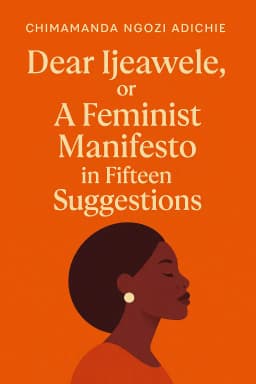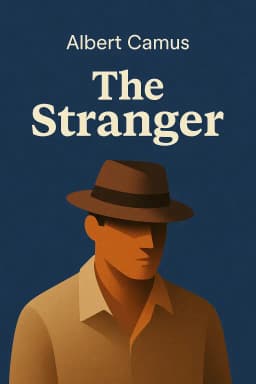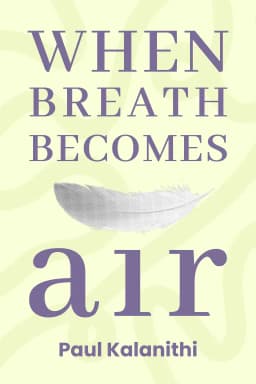
Hayek's Genius of Ignorance
Golden Hook & Introduction
SECTION
Michael: Most of us think progress comes from brilliant plans. We celebrate the five-year plans, the grand strategies, the visionary roadmaps. But what if our greatest innovations, our very civilization, are actually the product of accidents, ignorance, and letting people do things we don't approve of? Kevin: That sounds like a recipe for total chaos, not progress. Are you saying we should just fire all the experts, close the planning departments, and just… hope for the best? That feels incredibly reckless. Michael: It’s exactly the kind of provocative thought that the Austrian-British economist Friedrich A. Hayek wanted to spark. Today we are diving into his monumental 1960 work, The Constitution of Liberty. And you're right to mention experts, because Hayek, who later won a Nobel Prize, wrote this as the modern welfare state was booming. He was deeply worried we were trading our freedom for a false sense of security designed by those very experts. Kevin: A Nobel winner arguing for the benefits of ignorance? Okay, I'm officially intrigued. This book is famously dense and, let's be honest, has a reputation for being a tough read. Where do we even start? Michael: We start with the most fundamental word of all, the one Hayek believed we had twisted into near-meaninglessness: freedom.
The Real Definition of Freedom: Beyond the Slogans
SECTION
Kevin: Alright, freedom. We all think we know what it is. The right to vote, the right to speak your mind, the ability to do what you want. Michael: And Hayek would say all of those are either byproducts of freedom or different concepts entirely. For him, true liberty isn't about political rights, or inner peace, or even having a wide range of choices. He boils it down to one, very precise definition: freedom is the state in which coercion of some by others is reduced as much as is possible in society. It's independence from the arbitrary will of another person. Kevin: Okay, "coercion" and "arbitrary will" are doing a lot of work in that sentence. What does he actually mean by coercion? Is my boss coercing me when they tell me to finish a report I don't want to do? Are taxes a form of coercion? Michael: That's the perfect question, and Hayek is ready with an answer. Coercion isn't just any influence. It’s when someone intentionally manipulates your environment to force you to serve their purpose, not your own. He gives this fantastic little thought experiment: imagine a rock climber scaling a treacherous cliff. Suddenly, a rockfall blocks his path, leaving only one, extremely dangerous route to safety. Is that climber free? Kevin: I'd say no. His choices are severely limited. He's trapped. Michael: Hayek says he is absolutely free. His options are constrained by the harsh realities of nature, by objective facts. But no other person is bending him to their will. Now, if another person caused that rockfall specifically to force the climber to take that dangerous path for their own benefit, that would be coercion. Kevin: Ah, I see. It’s about human intention. The universe can be brutal, but it's not coercive. Only people can coerce. But what about a more social example? Hayek compares a penniless vagabond to a well-fed conscripted soldier. The soldier has security, food, a place to sleep. The vagabond has nothing. I think most people would say the soldier has more "freedom" to live a decent life. Michael: And Hayek would say they are profoundly mistaken. The soldier, for all his comfort, is entirely subject to the arbitrary will of his commanding officer. He must go where he's told, do what he's told, and his life plan is not his own. The vagabond, despite his poverty and hardship, is the master of his own day. He makes his own, albeit difficult, plans. Kevin: Wow. So freedom has nothing to do with wealth, or power, or even happiness. It's a very stark, almost negative definition—it’s about the absence of something. The absence of another person's thumb on the scale of your life. Michael: Exactly. It's not about what you can do; it's about who is in control of what you do. And this precise, almost clinical definition of freedom is the absolute bedrock for his next, even more mind-bending idea.
The Genius of Ignorance: How Civilization Advances Without a Blueprint
SECTION
Kevin: Okay, so if freedom is just about not being pushed around by others, how does that lead to progress? It still sounds like a very individual, almost isolating, concept. Michael: Because for Hayek, the ultimate value of individual freedom isn't just for the individual's own sake. It's the essential fuel for the engine of civilization itself. He argues that progress is driven by what he famously called "spontaneous order." Kevin: That sounds like a fancy term for chaos. You can't just hope a complex system, like an economy or a city, will just "spontaneously" organize itself for the better. Don't we need brilliant people to design it? Michael: Hayek’s counter-argument is devastatingly simple: no single mind, no government committee, no supercomputer, can possibly possess all the knowledge needed to run a complex society. Knowledge is fundamentally dispersed. The Brazilian coffee farmer knows the weather patterns on his specific hill. The London stock trader knows the millisecond fluctuations in the market. The Silicon Valley engineer knows the properties of a new silicon wafer. No central planner can know all of this. Kevin: So you're saying a planner in an office is always working with incomplete, outdated information. Michael: Precisely. Hayek says, "Civilization advances by extending the number of important operations which we can perform without thinking about them." We benefit from more knowledge than we are consciously aware of. Freedom is the mechanism that allows us to tap into this vast, dispersed ocean of knowledge. It allows millions of people to experiment, to adapt to their local circumstances, to fail, and, crucially, to stumble upon new things by accident. Kevin: Like the story of Alexander Fleming discovering penicillin. He didn't set out to find an antibiotic; he noticed some mold had contaminated a petri dish and killed the bacteria. No government committee for "The Five-Year Plan for Curing Infections" could have designed that accident. Michael: That is a perfect example. Or think about language. Did a committee invent English? Or money? Or the complex web of supply chains that gets an avocado from a farm in Mexico to a grocery store in Ohio? These are all incredibly complex, orderly systems that emerged spontaneously from the free interactions of millions of people, none of whom designed the whole system. Kevin: So when we try to centrally plan everything, we're not just being inefficient. We're actively shutting down the process of discovery. We're betting everything on the tiny sliver of knowledge held by the planners and ignoring the collective wisdom of everyone else. Michael: You've got it. The argument for freedom, for Hayek, is ultimately an argument from humility. It's a recognition of our profound, inescapable ignorance. Liberty is essential, he writes, "in order to leave room for the unforeseeable and unpredictable." Kevin: So the "genius of ignorance" is that by acknowledging that we're all mostly ignorant about most things, we unlock our true collective intelligence. That's a powerful idea. But it also sounds incredibly fragile. How do you protect a system that relies on... not being in control?
The Rule of Law: The Operating System for Liberty and Its Modern Enemies
SECTION
Michael: You've hit on the final, and perhaps most important, piece of Hayek's puzzle. If freedom is the goal and spontaneous order is the process, then the "Rule of Law" is the protective operating system. Kevin: Which, to most people, just means "you have to follow the law," right? Michael: Not to Hayek. This is one of the most critical distinctions in the entire book. He separates "rule by law" from the "Rule of Law." Any dictator can rule by law—they just issue decrees and call them laws. The Rule of Law is a much higher standard. It means the laws themselves must have specific, unshakeable qualities. Kevin: Okay, what are they? Michael: The laws must be general and abstract, meaning they don't name specific people or groups. They must be known and certain, so you can predict how they'll apply to you and plan your life. And most importantly, they must apply equally to everyone, including the people who make and enforce them. The government is not above the law; it is a servant to it. Kevin: Can you give me a concrete example of the difference? Michael: Absolutely. A law that says, "No one may build a structure taller than 50 feet within the city limits" is a general, predictable rule. It fits the Rule of Law. A law that says, "The City Planning Committee shall have the discretion to approve or deny building permits based on what it deems is in the community's best interest" is rule by law. It's arbitrary. It depends on the will of the committee members that day. Kevin: And you can't plan your life or your business around the whims of a committee. You're no longer free from their arbitrary will. Michael: Exactly. And this is where Hayek becomes a fierce critic of the modern welfare state. He saw the explosion of administrative agencies—making countless discretionary decisions about taxes, housing, healthcare, and social security—as a slow-motion demolition of the Rule of Law. It was replacing a government of laws with a government of men, even if they were well-meaning men with PhDs. Kevin: And that brings us right back to the beginning. The ultimate threat to your freedom isn't the evil tyrant, but the well-meaning expert who has been given the power to coerce you "for your own good." It's a chilling thought.
Synthesis & Takeaways
SECTION
Michael: It is. And you can see how the whole system is interconnected in his mind. True freedom is the absence of arbitrary coercion. This freedom is the necessary condition for spontaneous order—the unplanned, emergent progress that arises from our dispersed knowledge. And the only way to protect that freedom and allow that order to flourish is with the Rule of Law, a shield against the arbitrary will of any person or group, especially the state. Kevin: It's a powerful and, let's be honest, a very demanding vision of society. It asks us to trust processes we can't see and to accept outcomes we might not like. It's no wonder the book has been so controversial, but also so influential. I read that Margaret Thatcher, the former British Prime Minister, once famously interrupted a presentation by pulling this book from her briefcase, slamming it on the table, and declaring, "This is what we believe." Michael: It's definitely not a philosophy for the faint of heart. And it's important to note, Hayek himself didn't see it as a conservative argument. He wrote a famous postscript to the book titled "Why I Am Not a Conservative." He argued that his belief in freedom wasn't about preserving the past, but about creating the conditions for an unknown, better future to emerge. Kevin: He leaves us with a really profound choice, then. A choice between the apparent safety of a designed, managed society and the unpredictable, sometimes messy, but ultimately more creative and prosperous world that he believed only comes from genuine liberty. Michael: It's a choice that feels more urgent today than it did when he wrote it in 1960. He forces us to ask: are we willing to trust the unpredictable process of freedom, or will we continue to trade it, piece by piece, for the illusion of control? Kevin: A heavy question to end on. We would love to hear what you all think. Does Hayek's stark definition of freedom resonate with you, or does it feel impractical in the modern world? Find us on our social channels and let's continue the conversation. Michael: This is Aibrary, signing off.









